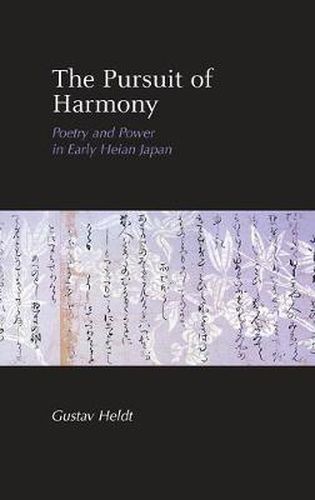Readings Newsletter
Become a Readings Member to make your shopping experience even easier.
Sign in or sign up for free!
You’re not far away from qualifying for FREE standard shipping within Australia
You’ve qualified for FREE standard shipping within Australia
The cart is loading…






The Heian court of the late ninth and early tenth centuries represents one of the most innovative and influential periods in the history of Japanese poetry. It witnessed the creation of entirely new forms of verse in poetry matches, screen poems, and officially sponsored anthologies, none of which had a precedent in earlier times. At the apex of these phenomena lay compilation of the Kokin wakashu (Collection of Poems Ancient and Modern), whose status as the first imperial anthology of native poetry would make it integral to Japanese court culture for centuries afterward. Despite the enormous historical significance of these new forms of poetry and the marked interest displayed by powerful individuals in patronizing them, however, little sustained attention has been paid to the ties between the practices of producing and performing verse and processes of economic, ideological, political, and social change in this period. This book is intended to address such issues through an investigation of the ways in which different members of the court community deployed poems in the pursuit of power.
$9.00 standard shipping within Australia
FREE standard shipping within Australia for orders over $100.00
Express & International shipping calculated at checkout
The Heian court of the late ninth and early tenth centuries represents one of the most innovative and influential periods in the history of Japanese poetry. It witnessed the creation of entirely new forms of verse in poetry matches, screen poems, and officially sponsored anthologies, none of which had a precedent in earlier times. At the apex of these phenomena lay compilation of the Kokin wakashu (Collection of Poems Ancient and Modern), whose status as the first imperial anthology of native poetry would make it integral to Japanese court culture for centuries afterward. Despite the enormous historical significance of these new forms of poetry and the marked interest displayed by powerful individuals in patronizing them, however, little sustained attention has been paid to the ties between the practices of producing and performing verse and processes of economic, ideological, political, and social change in this period. This book is intended to address such issues through an investigation of the ways in which different members of the court community deployed poems in the pursuit of power.